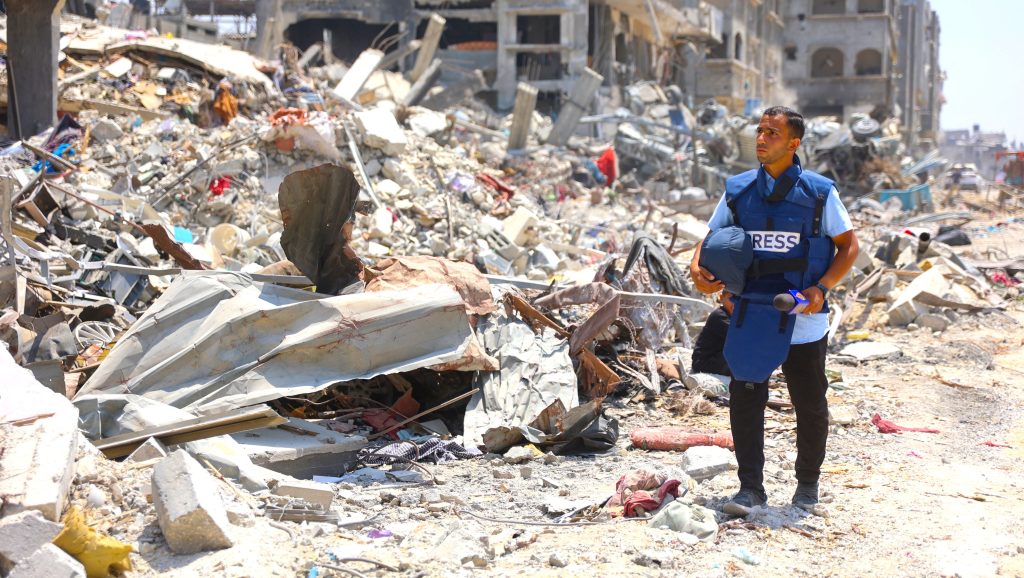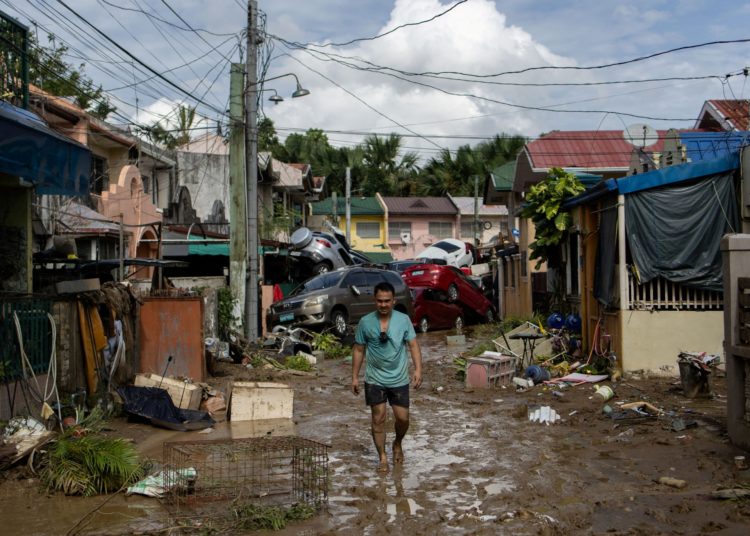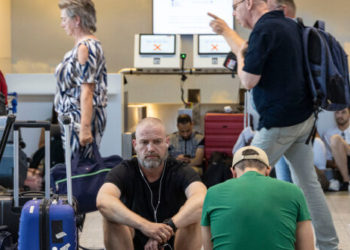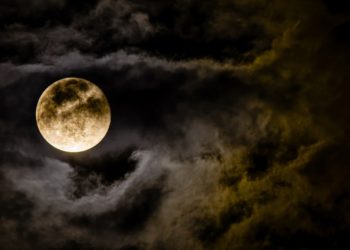EXCLUSIVE: Mohamed Shalaby was an frequent BBC contract worker for seven years before his most recent assignment ended abruptly last month. Shalaby was embedded at BBC Verify, the flagship fact-checking initiative, tasked with verifying footage of unspeakable horrors from Gaza. Images of dismembered children are burned into his brain.
On August 10, Shalaby was at work when Al Jazeera journalist Anas Al-Sharif was killed in an Israeli strike. The Egyptian filmmaker tells Deadline that he was one of the first BBC News reporters to jump on the story, helping organize an interview with Al Jazeera’s managing editor, Mohamed Moawad. But the day after Al-Sharif’s death, Shalaby was anxious about the veracity of BBC News’ own reporting on the journalist’s background.
Correspondent Jon Donnison reported on a BBC News live blog that Al-Sharif “worked for a Hamas media team in Gaza before the current conflict.” This claim was amplified on other BBC platforms, as well as being carried by other outlets, including CNN, but Shalaby was concerned that the statement was unverified and not transparently sourced. Israel has previously claimed Al-Sharif led a terrorist cell in Hamas, but his death was condemned by the United Nations Human Rights Office, Reporters Without Borders, the Foreign Press Association, and the Committee to Protect Journalists.
Shalaby raised questions with his superiors about Donnison’s statement and even made an official editorial complaint, despite warnings from a colleague that he could be “blacklisted” for expressing himself. He claims his concerns fell on deaf ears: messages to his team went unanswered and he was “told to take my queries elsewhere.”
After deciding that he had exhausted internal processes, Shalaby went public, writing on Instagram Stories: “BBC Verify claims in this piece that Anas ‘was working for a Hamas media team’. This line is NOT verified and not sourced and is not aligned with Verify editorial standards.” In other Instagram updates, he re-posted messages that were critical of Western media coverage of Palestinian journalists being killed in Gaza, one of which accused Israel of murder.
Shalaby later discovered he was not alone in objecting to the remarks made about Al-Sharif’s Hamas links. In an internal email seen by Deadline, sent to 1,200 employees on August 19, BBC journalists requested an “essential amendment and a correction” to online output.
BBC News stood by the reporting, with a spokeswoman saying its journalists “scrupulously fact-check and verify all information we obtain.” An insider refuted Shalaby’s claim that the information was not verified or sourced, pointing out that if it wasn’t “aligned with Verify editorial standards, it wouldn’t have been on BBC Verify.”
Shalaby says he heard from his BBC News managers fairly swiftly after his Instagram post. Their main concern was not the substance of his accuracy complaint, he claims, but rather that they wished to discuss his social media output with an HR representative before his final shift on August 15. When Shalaby declined due to work commitments outside of the BBC, he says the BBC suspended his account, work ID, and he was told that if he showed up at the corporation’s premises, he would be met by an escort. “I’ve been working there since 2018, so it was really very shocking,” he reflects.
BBC News declined to comment on Shalaby’s experience. The corporation’s social media rules state that employees should not criticize colleagues in public, nor should they “express a view” on issues that are a matter of political debate or controversy, though Shalaby denies that he did either of these things.
Shalaby, who recently served as a producer on Channel 4’s immigration series Go Back To Where You Came From, has waited a month to speak out about his experiences. He respects and admires the BBC as a public service institution, but argues that BBC News has a “culture of complacency and institutionalized bias” on Gaza. He adds that the coverage of Al-Sharif “smeared” the Al Jazeera reporter’s reputation and put a target on the back of other journalists in the region.
Shalaby says he became “institutionalized” in BBC News’ culture, despite being able to shed light on the plight of Gaza civilians through stories such as his reporting on Microsoft closing Palestinian email accounts without warning. “I betrayed what I was seeing with my own eyes, deciding not to challenge my editor because I didn’t want to be difficult,” Shalaby explains. “When it comes to Palestine, there have been many failings by the BBC to meet its editorial commitments.”
BBC director general Tim Davie said during a UK Parliament committee hearing last week that the Gaza crisis is the toughest editorial challenge the corporation has ever experienced. There are yawning divisions internally about the credibility of coverage, with many in the Jewish community attacking BBC News’ output as being anti-Israeli, pointing to failings, including Gaza: How to Survive a Warzone, which was revealed to have been narrated by the child of a Hamas minister. Equally, the corporation has been accused of censoring Palestinian stories after it decided against screening Gaza: Doctors Under Attack. Davie said he remained committed to giving a voice to Palestinians.
Shalaby says he is using his voice after colleagues in Gaza were killed in the line of duty.
The post BBC News Journalist Mohamed Shalaby Says He Was Banned From UK Broadcaster’s Premises After Calling Out Gaza Coverage appeared first on Deadline.




